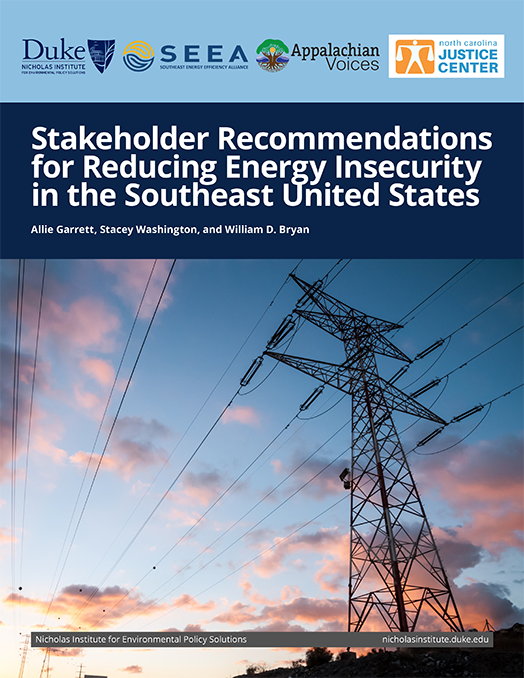Energy insecurity—the inability to maintain energy services like heating and cooling—is one of the most pressing issues in the Southeast, where more than one out of every four households face access or affordability challenges. This is more than an energy problem. Paying high energy bills and worrying about utilities being shut off can drain long-term savings, limit economic opportunities, and lead to difficult—and potentially dangerous—decisions to make tradeoffs between energy and other vital services and household items.
Energy insecurity stems from many factors, including income, energy costs, the quality and affordability of housing, historical practices and policies, access to efficient building technologies, and more. Because the causes and effects of energy insecurity are so far-reaching, there is a need for coordinated approaches that cut across sectors to address its many facets, and effective solutions must be responsive to the unique context of the South.
With this goal in mind, Duke University’s Nicholas Institute for Environmental Policy Solutions developed the Southeast Energy Insecurity Stakeholder Initiative in 2021. The Initiative facilitated broad, collaborative discussions among a range of regional stakeholders to identify opportunities for reducing energy insecurity in the region. Opportunities are outlined in this report, and efforts to address them must take place at different scales and in different venues.
While diverse, recommendations highlight several key themes. All recommendations also share an understanding that energy insecurity is a set of entwined issues. While this makes it difficult to address effectively by any one party, it also provides an opportunity. By following the path laid out in this report, we have the potential to build regional networks that level existing network and institutional hierarchies, bring out new voices, and give all communities in the Southeast a say in their energy future.


